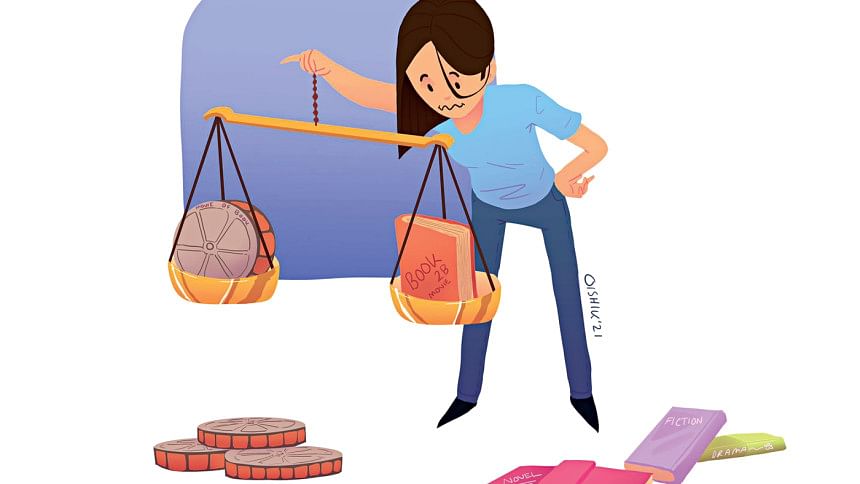Is the book really better than the adaptation?

I think it started, at least for us kids of the '90s, with the Harry Potter franchise. The Prisoner of Azkaban left out that blissful solitary week that Harry spent in Diagon Alley before classes started at Hogwarts. In The Goblet of Fire, Dumbledore transformed from a source of calm confidence to a screaming, panicked headmaster. Three and a half films later, no amount of theatrics could show through screenplay how we felt while being inside Harry's mind, as he walked through Hogwarts down to the Forbidden Forest to sacrifice himself to Tom Riddle.
And that's the point. Many of us felt so underwhelmed by the adaptations of these books because they left out scenes that were seemingly crucial to us, because they failed to trigger in us the feelings that the original text did. But the feelings about a book can be as multifarious as the number of its readers.
Downright bad adaptations aside—last year's Netflix's Rebecca comes to mind, which was a bad film in itself—I think we tend to forget that a film based on a book is more than an adaptation, that it is a medium in itself; for many, the preferred medium of storytelling in the same way that books are for devout readers. We forget, therefore, that each medium has its own strengths and limitations, and that the story being told transforms as it crosses over between media.
This is why I, personally, feel uncomfortable subscribing to the idea that an adaptation will always fail a book; or that the film that outdid the book—such as The Godfather—is an anomaly.
What I do believe is that stories thrive and survive upon the spirit of circulation. A story always needs a pair of eyes and ears and the readers' act of reimagination. Homer, who mythology tells us was blind, created the most history-defining of stories, the Illiad and the Odyssey, by retelling tales of glory that he himself heard on his travels. These stories were passed on, written down, reimagined. Hundreds of years later it gave us Ulysses, another great work of art that redefined the experience of residing inside a character's mind. And what a gateway to intellectual experience the early 20th century unlocked.
These were adaptations in the same way that Disney reimagined, for us, the tales of the Thousand and One Nights and Shakespeare's Hamlet, or the way that the Lord of the Rings and Games of Thrones approached the mammoth proportions of a story and found a way to distill them for an uncountable number of viewers. They might sound like too light an example to merit comparison with Homer and Joyce, but which of the stories do we remember better? Which have more deeply impacted the times in which we live?
Every story is a product of its time, and if it is historical fiction, then it even more urgently needs the tools afforded by adaptation to appeal to a new group of readers and viewers. As the contested opinions around Netflix's Ray have shown, attachment with an established name and reputation heightens the expectations from an adaptation. And that's great. It only pushes one to work harder and more carefully on retelling a well-loved story. But when an anthology promises to be based on Satyajit Ray's works, does it promise to retell, verbatim, the stories he has already told us? Or can it attempt to follow in Ray's footsteps by experimenting with storytelling, by trying to say something important and contemporary and insightful about the human condition in the way that he pioneered?
Is this something we can keep in mind as we gear up for the next most promising adaptation heading our way? I for one can't wait to watch how Srijit Mukherjee decides to retell Mohammad Nazim Uddin's Rabindranath Ekhane Kokhono Khete Asen Ni.
The author is editor of Daily Star Books. Reach her at [email protected].

 For all latest news, follow The Daily Star's Google News channel.
For all latest news, follow The Daily Star's Google News channel. 



Comments